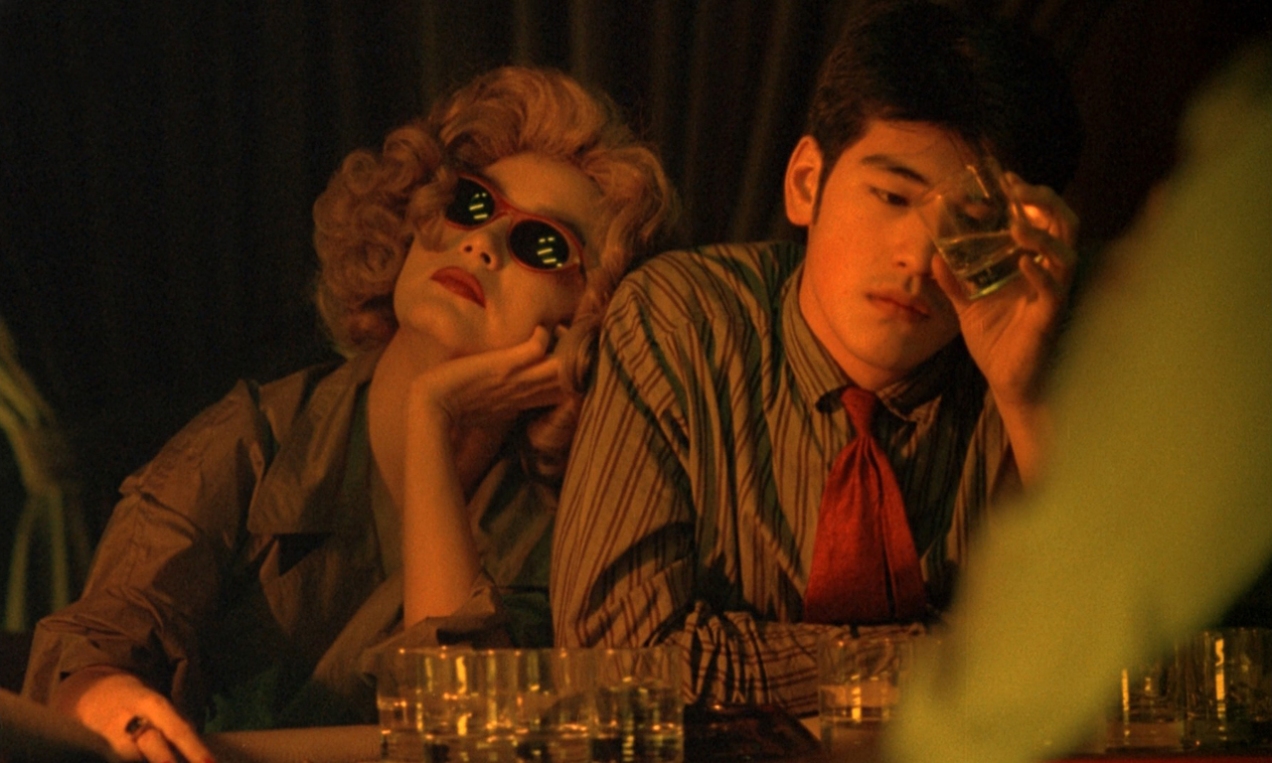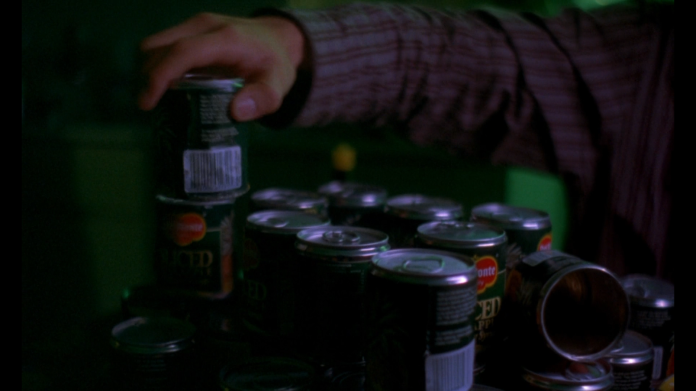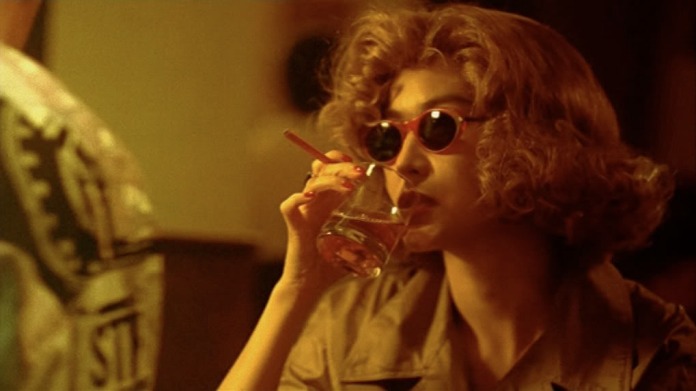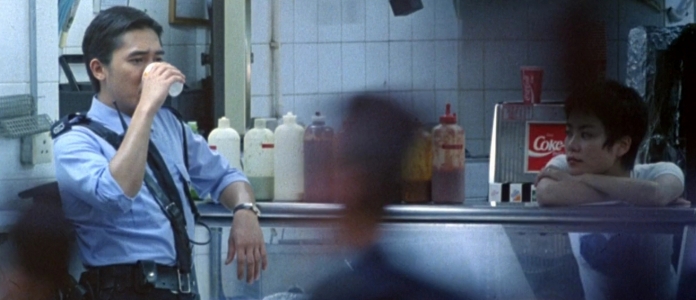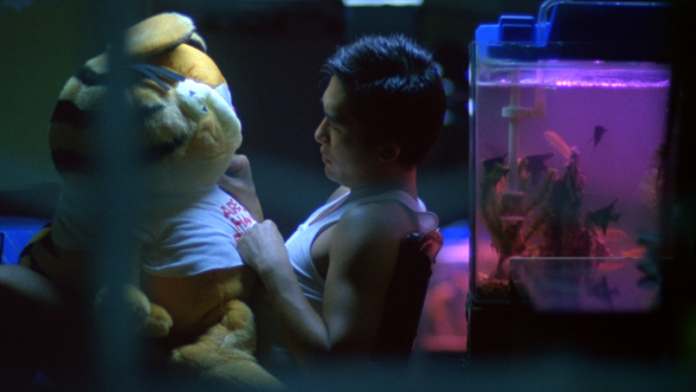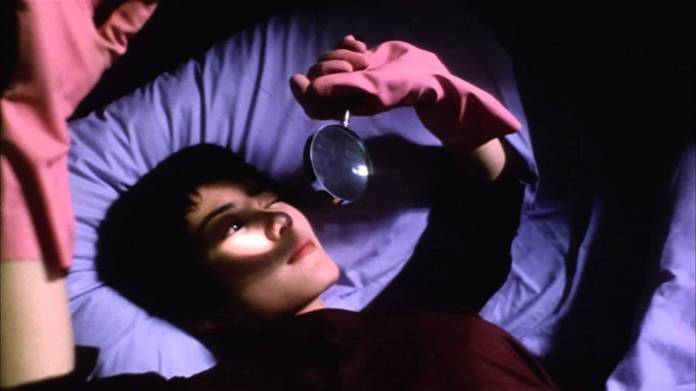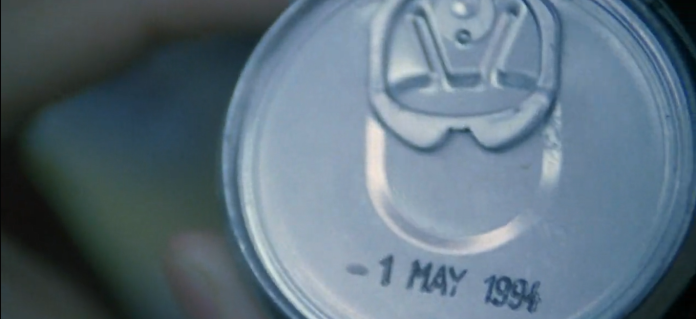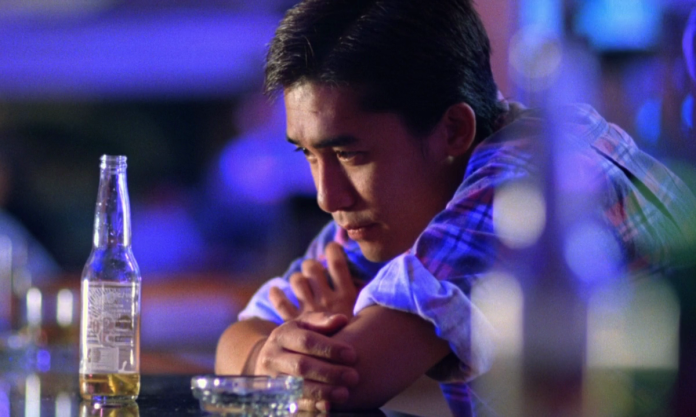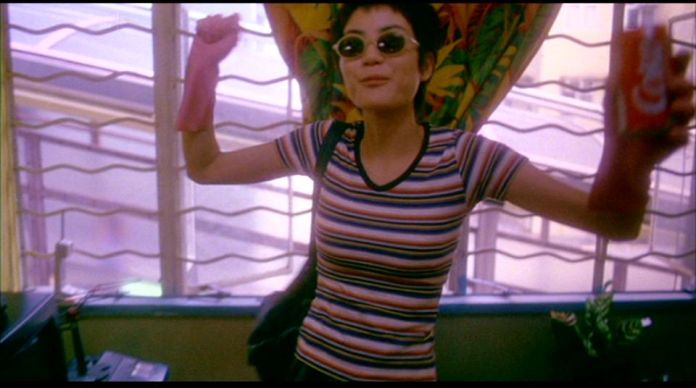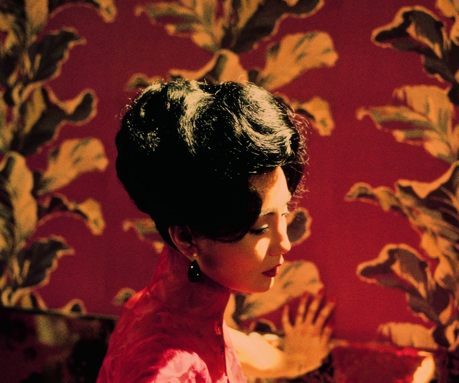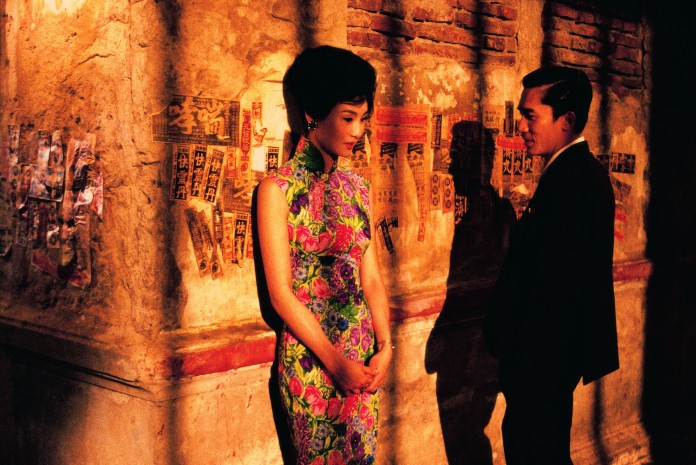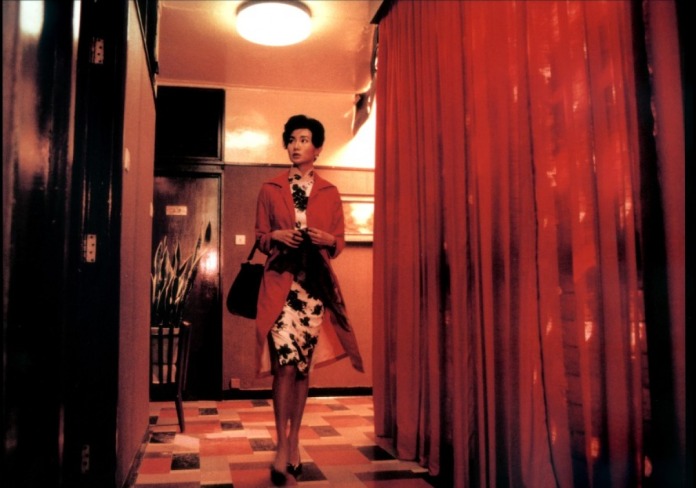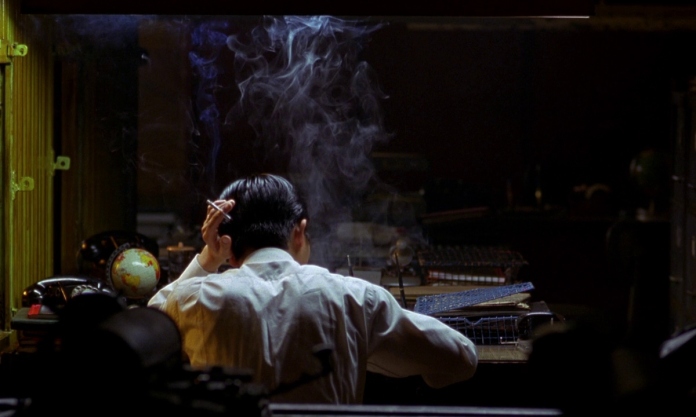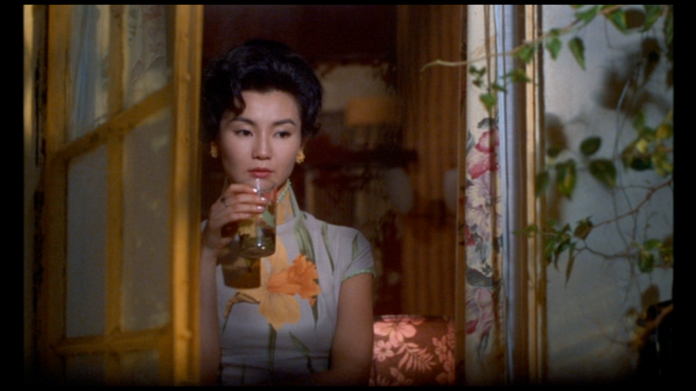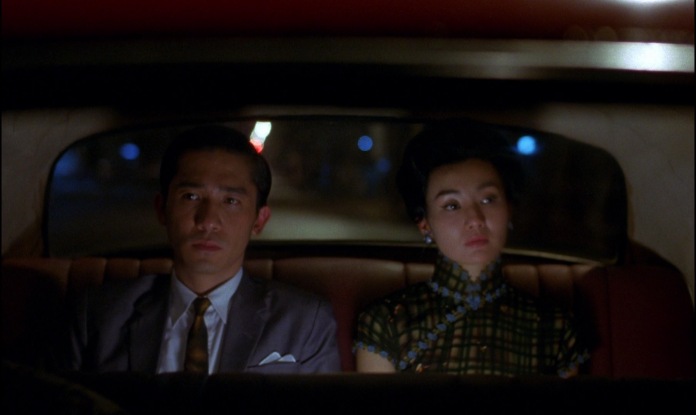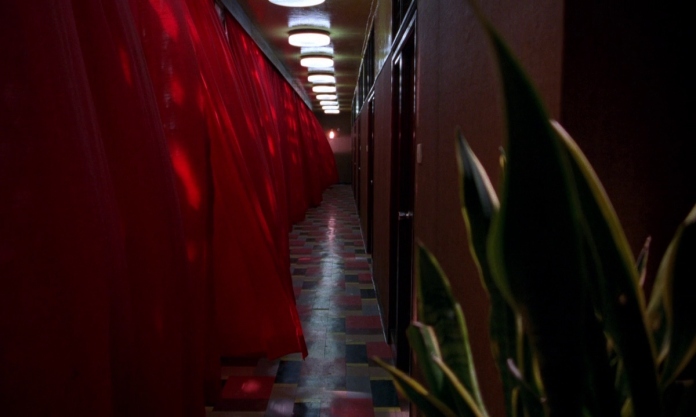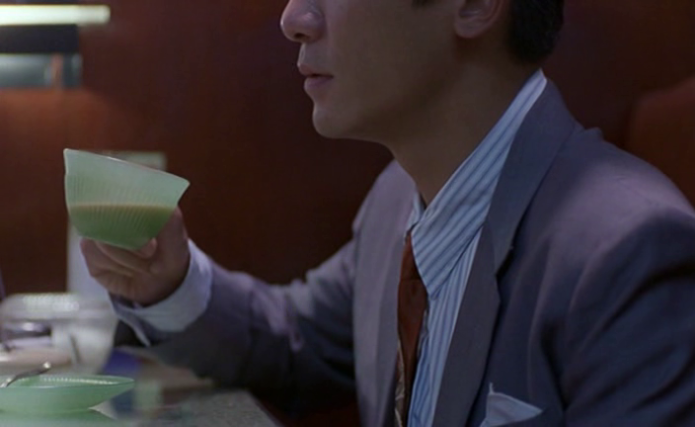After reviewing a few animes, I thought I’d go back to reviewing a movie or two. You know, for variety.
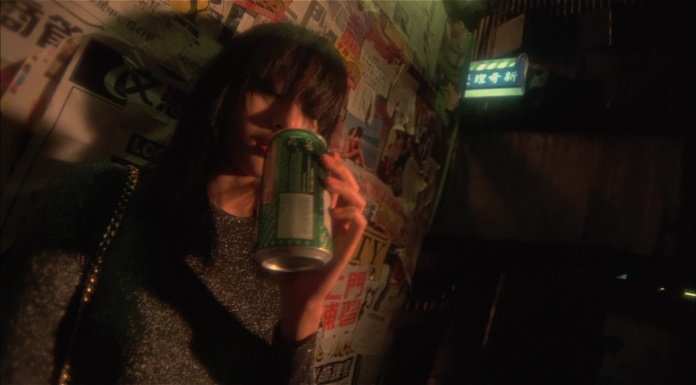
Michelle Reis as the Wong Chi-ming’s (Leon Lai’s character) partner/agent.
Synopsis and spoiler-free section:
Here I am with another film from Wong Kar-wai. Fallen Angels (Chinese: 墮落天使), released in 1995, is a “loose sequel” if you will, to Chungking Express. Although it does not link to the stories of Chunking Express, it started out as the “third story” to Chungking Express – but as you can tell, it ultimately became it’s own story instead of being attached to Chungking Express. It still however follows a similar style (of camera work, editing, and overall cinematography) and themes.
Anyway, enough about that – Fallen Angels follows two main stories; the first story is about Leon Lai’s character, Wong Chi-ming, a disillusioned and tired killer-for-hire, who is contemplating leaving the business, and therefore leaving his partner. His partner/agent (who remains unnamed for the entirety of the movie), played by Michelle Reis, wrestles with her feelings about his wants, and her own feelings about him. They had been partners in crime (literally) for a long time now, and possibility of change creates instability in both of their mental states. Meanwhile, in the second story, Takeshi Kaneshiro plays He Zhiwu, a mute, who has a very busy-body, to say the least. From falling in love, to making new friends, to opening up several businesses on his own at night, Zhiwu is a sight to behold.
Interesting, but alienating characters:
As with all of my favourite Wong Kar-wai films, this one has really interesting characters which really hold the story together, and is the main reason why I like this story. Needless to say, Reis’ character and Lai’s character, Wong Chi-ming, are bad-asses. They’re both emotionally-detached, cool-headed, and usually logical thinkers. They’re the definition of “cool”, clad in their nonchalantly fashionable outfits and smoking their cigarettes. Kaneshiro’s character, Zhiwu, is not as “cool”, but he is so dynamic and fun, and honestly makes for the most amusing scenes in the movie. His parts are definitely the funniest parts of the movie.
But the things that make them so intriguing as characters also make the characters very unrelatable. Chi-ming, is struggling with issues that we (hopefully) have never experienced. We can sympathize with him, but we don’t feel the weight of his decisions and his thoughts. Reis’ character is just ineffably cool and sexy. Her edginess, her ability to create such an impenetrable front for her feelings, her beauty – it’s a great look and a great personification of a fantasy female character, but really not relatable for most people (if she is relatable to you then you have to teach me your skills). This really leaves Zhiwu to be the most relatable, which is ridiculous, because he is ridiculous. But Zhiwu, like a lot of us, just wants to be socially accepted. I’m sure we’ve all felt that we were once a little overbearing, a little socially awkward, and that we were unable to take social cues. Zhiwu just… takes it more over the top than most people.
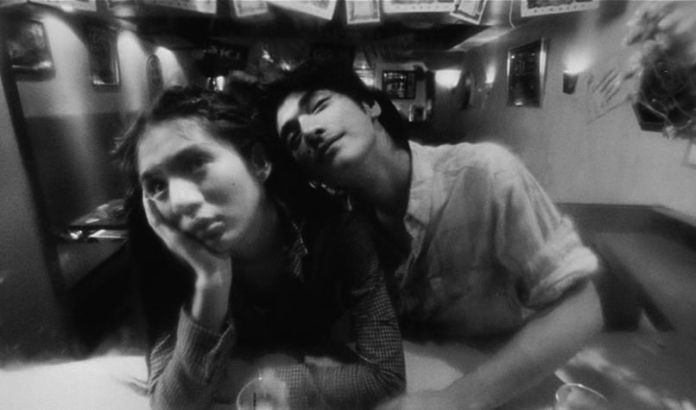
“Am I too close?”
Mood and style of the film:
I don’t want to talk about Chungking Express too much because I already have a review for that (here, by the way), but I don’t think you can get away from it when talking about the style of Fallen Angels. Right off the bat, if you’ve seen Chungking Express, I think it’s pretty obvious that the style of this film is very similar. The way they filtered and colour matched this film is very similar, and creates a similar mood as Chungking Express because of it. For those of you who haven’t watch Chungking Express, I’m talking about the greenish-blue tone of this movie, that gives the film an overall look of “coolness” (in respect to colour). Mood wise, it gives the film this kind of grungy vibe without seeming dated.
However, I think Fallen Angels experimented with these elements more than Chungking Express. In Fallen Angels, you will notice a lot playing with the angle of the shots, and also a lot of playing with the fish-eye effect, probably to illustrate the confusion and mood of the characters. There was also some playing with flashbacks, which provided an interesting look into the pasts of our mysterious characters. I think they were also a lot more adventurous with the locations in this movie, and even had some scenic shots here and there. I would describe the overall mood of this film to be the feeling of yearning for romance. This feeling of yearning and loneliness is helped by the main song of the soundtrack,
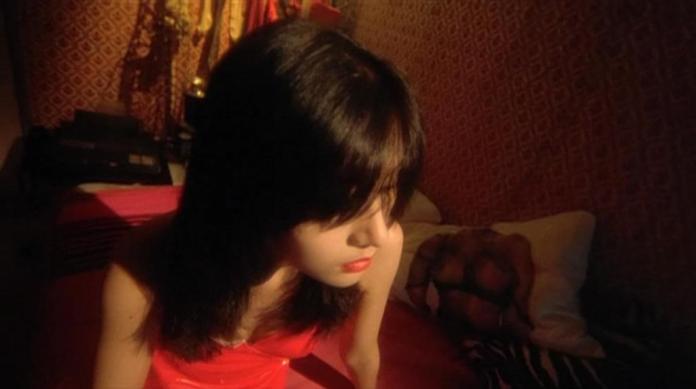
Playing with the angle and the colours of the room. (I didn’t catch it initially but slightly NSFW pillow there…)
Music and sound:
(I’m only going to talk about this a bit because the review is already running a little long.) Fallen Angels makes good use of the everyday background noises (ie: the sound of the TV on in the background) and movement noises (ie: heels clicking on the ground), and it gives the world in the movie a very organic feeling to it. There are some very awesome songs they used in this movie that was great for creating the mood and for engagement – but for brevity’s sake, the most notable song used was “Forget Him” by Shirley Kwan. This illustrates the heart-wrenching aftermath of a broken relationship, and is used again and again in this movie. It goes amazingly well with the theme.
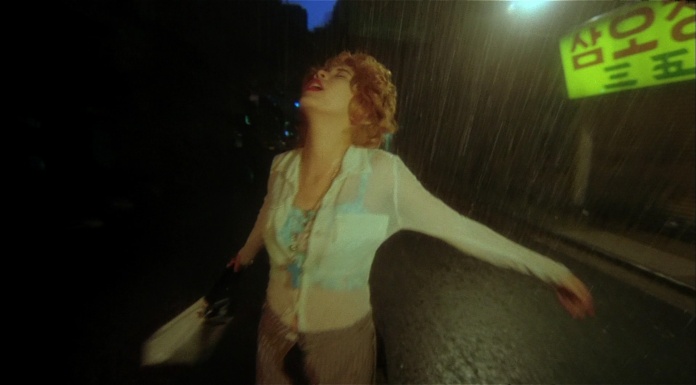
There are two kinds of people after a breakup.
Recommended for:
Obviously, this is recommended for people who really liked Chungking Express. They’re by no means the same movie, but they have similar elements that are very complementary to each other. What you SHOULDN’T do is compare this movie to Chungking Express, because I struggled with formulating a real opinion on this movie for a long time due to that. That being said, even if you haven’t watched Chungking Express, you should definitely check this movie out. I don’t know which one I could recommend to watch first (I watched Chungking Express first) but it ultimately doesn’t matter since they’re not linked. Fallen Angels has very intriguing characters and interesting premises, and is very good at evoking mood. It is an unconventional love story, that focuses more on the character in love than progressing the romance.
I wouldn’t recommend this for people who want something that is very plot driven. There is some advancement in plot in this story – but that’s not the main goal of this movie. I feel like the main goal is more to create mood and to tell interesting anecdotes about the character’s life. There’s a lot of attention focused on camera work and the little movements of out characters that ultimately don’t add to the progression of the story, and is only to develop the theme or the characters.
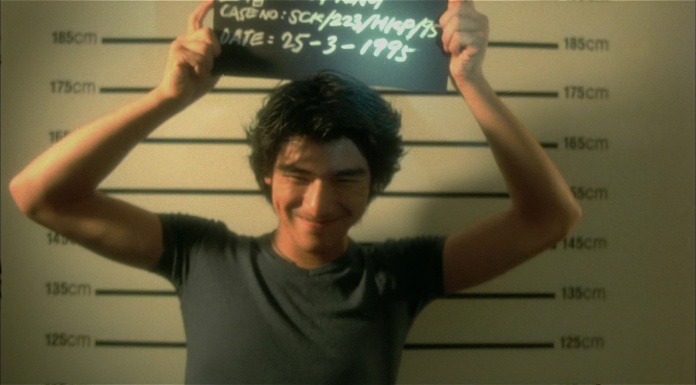
Happiest criminal ever.
In-depth analysis (spoilers ahead):
Scroll down to TLDR section for the ratings and summary!
Favourite story line:
As with my Chungking Express review (I know, I know, I keep referencing that movie… It’s hard not to!) I will discuss which of the two story lines is my favourite. It’s a little bit harder, because Fallen Angels connects the two stories a lot more than Chungking Express, which is a quality of Fallen Angels that I really like. Both of these stories are so unique, in different ways. Although it isn’t uncommon to have a story like the first story, the story of the two criminals who struggle with their relationship, I think Fallen Angels does a really good job with it. I liked how this movie focused on the individual character’s struggles with their feelings instead of trying to work towards progressing them as a couple – because that just isn’t a smart move, especially for people in their profession. The plot isn’t special, but the way they go about it is. This could have been another super cheesy movie where the characters just go like “But I need you…” and such, until they make love and ride off into the sunset together. Despite me saying that their characters aren’t relatable, they’re oddly realistic and true to their personalities.
The second story, as I stated above, is just a lot more funny. Zhiwu is the quirkiest of the quirky. I didn’t care much for his romance parts, but I loved watching his attempts to “bump shoulders” with the people that he met. He was so lovable to watch – but maybe not so lovable to meet (I sure wouldn’t want to be force-fed soft serve ice cream… or… huh.) He went through so many phases in the amount of screen time he had. My favourite phase of his, and the phase that resulted in my favourite scene of the movie, is his video taping scene. My favourite scene of the movie was when Zhiwu sits alone in his apartment, watching a taped video of his dad cooking. Damn near broke my heart :'(.
So, if I had to choose between the two story lines, I liked the second story line more. In a movie chiefly about creating good characters, I liked Zhiwu as the character the most.
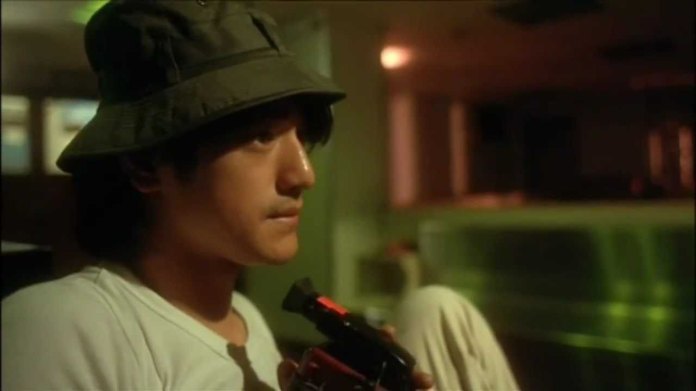
Zhiwu watching some old recorded tapes…
TLDR; and ratings:
Recommended for: People who liked Chungking Express, people who pay attention to cinematography in a movie, people who like good character building
Not recommended for: People who like plot driven story lines, people who don’t care for A LOT of attention to detail in films
Visuals: 8/10 – Love the style of this film, obviously. The visuals add a lot to the entire mood of the film. This film does a lot of interesting things with the camera to compliment and convey the feelings of the characters.
Sound: 8/10 – Great, great soundtrack and great usage of everyday noises to great an organic vibe from this not so entirely “true to life” movie. The music really helped to tie this movie together.
Overall enjoyment: 8/10 – This movie is filled with intriguing and odd characters. While the premise seems entirely fictional, Fallen Angels still somehow feels realistic. It’s a lovely film to watch stylistically, and it has a very good soundtrack that helps breath realism into this movie. And although the characters aren’t very relatable, that doesn’t stop them from being very amusing to watch.


